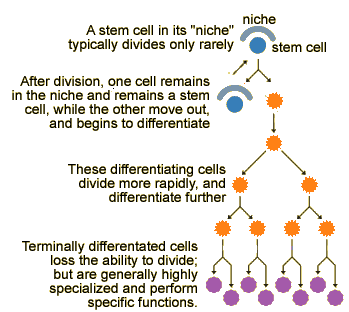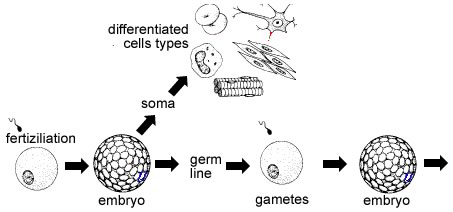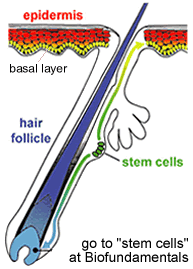So, an obvious question, which I think is close to the one you are
asking, is "why aren't all cells stem cells?"
There answer is thought to do with the need to tightly regulate
cell division.
With each cell division (and replication of the genetic material), cells
accumulate mutations; in some cases, these mutations can lead to unregulated
or inappropriate cell growth.
Unregulated cell division is the basis for cancer, and can lead
to the death of the organism.
It is thought that restricting the proliferative
life span of most cells in the body is a anti-cancer strategy;
unfortunately cancer cells can find ways to reverse this restriction
on cell division.
For example, stem cells have active telomerase while most non-stem cells
have turned off the genes encoding telomerase.
Telomerase
activity is involved in protecting the ends of the chromosome from
"molecular erosion" during cell division – when this occurs, it leads
to cellular senescence. In many cancer cells, the genes for
telomerase have been turned back on. |


